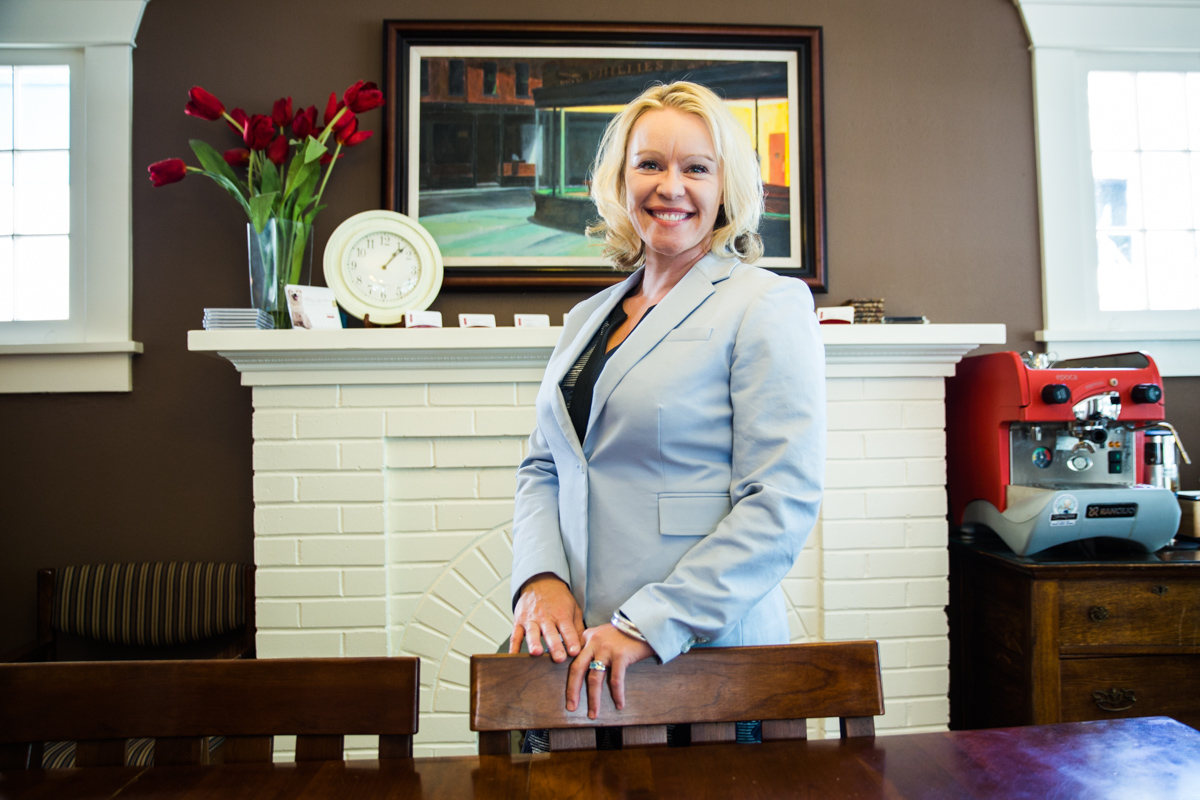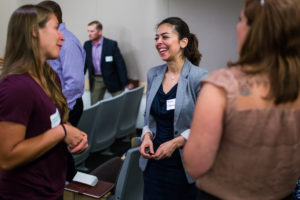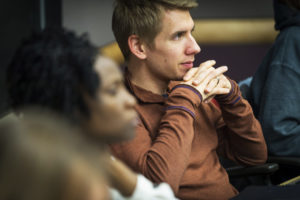
Whether working as a photojournalist covering everything from natural disasters to professional sports, or serving as press secretary to Wyoming governor Dave Freudenthal, Cara Eastwood Baldwin has always been up for a challenge.
When she began her career at Linden Marketing doing business development, Cara pushed herself to learn as much as she could about the firm and her clients, delving into healthcare, the utility industry, higher education, energy research and emerging technologies.
“After six years I gained quite a bit of knowledge and experience,” said Cara, but she was still looking for a way to connect all her expertise.
“It became very clear that an MBA was what I needed to fill those gaps.”
A different approach
Cara began looking around for what school might be a good fit. She graduated from University of Colorado Boulder as an undergraduate, had business connections at the University of Wyoming, and knew friends who had attended the University of Denver. But Colorado State University stood apart.

After she began talking with the CSU College of Business’s MBA program staff, Cara decided to accept an invitation for a graduate orientation.
“It felt very personal,” said Cara.
Being welcomed by faculty and staff at the college, and getting more information about the ins and outs of the degree, Cara became even more sure of her choice to seek a master’s.
“They were a leader in getting ahead of delivering an educational product to people like me – at this point in my life – so I just felt like all the stars aligned,” she said.
The school’s history of tailoring its master’s degree for working professionals also gave Cara confidence.
“The way the program was presented was very appealing,” said Cara, who was excited about the how the degree was structured to develop students’ career opportunities.
After being out of school for over 10 years, at first she was worried about the pace of classes, but soon found her rhythm attending lectures or watching them online, taking notes, and doing all her homework over the weekend.
“That meant I had the entire week to think about work and that was all I had to do,” said Cara. “And that made it manageable.”
But other students took completely different approaches, from studying in chunks throughout their day or spending their evenings after dinner doing class work so their Saturdays and Sundays would be free.
“Deciding how bad you want it is a really big commitment,” said Cara. “But once I committed to it, I was going to do it. Nothing was going to get in my way.”
Applying her skills
About a year into the Evening MBA program, Cara’s career quickly accelerated when she was promoted to president of her firm. As her responsibilities grew she began to see how versatile the degree was making her.
“People often talk about an MBA being the tool that you need when you’re sitting at the table to be able to understand what an expert in any discipline of business is saying, and for me that was very much the case,” she said.
Through her coursework she was able to gain insight into a variety of topics that helped her better understand her company’s finances, learn how deploy effective business strategies, develop leadership skills, and identify the right people to bring onto her team.
“So all of the management and leadership training I literally was learning and using the next day, learning and using the next day, on a weekly basis.”
“Being someone who was somewhat new to the academic discipline of business, it was fascinating to me the way that the coursework divided up all of these different skill sets,” Cara said. “I was really impressed with the faculty.”
Connections in the college
Cara considered pursuing an online master’s degree, but ultimately decided it didn’t fit her lifestyle.

“I stare at a screen 12 hours a day and field emails at night and on the weekends,” said Cara, who thought her retention would be better if she was actually in the classroom.
“Being in the on-campus cohort meant I had 34 people that I was in class with for two years, and we formed an unbelievable bond of friendship between all of us, and that to me made the program more enjoyable,” she said.
Sitting beside people with diverse backgrounds, who had studied finance, biochemistry, music and veterinary medicine, made her realize she could succeed even though she hadn’t studied business as an undergraduate.
“That’s another strength of the program,” said Cara. “You’re all kind of experiencing a shared struggle, shared challenges, but also those really exciting great moments too, when you finish up a semester, or finish a project together, and we’d all go out and grab a beer and celebrate.”
The lessons that she and her classmates learned in the 21-month program helped shape Cara’s approach to developing a business and gave her a broader perspective of her client’s needs.
“Whether I’m running a marketing services firm or a dry cleaner, or a restaurant or a non-profit, the skills that I learned in an MBA are applicable.”
But it wasn’t just the new skills that helped propel her career forward, it was the people, her peers and professors.
“I’ve been going through some kind of exciting changes here, and I have people who are experts in their fields that I can send an email to and they’ll get back to me and provide me with advice, or a referral, or a suggestion.”
“For me that’s been one of the most valuable parts of it, is those relationships,” said Cara. “It’s not just a networking thing. It’s a lot deeper than that, and I’m hopeful that I’ll keep those relationships forever.”